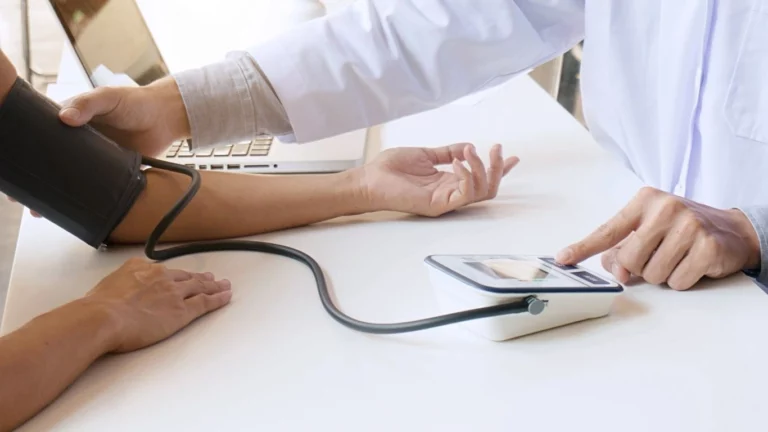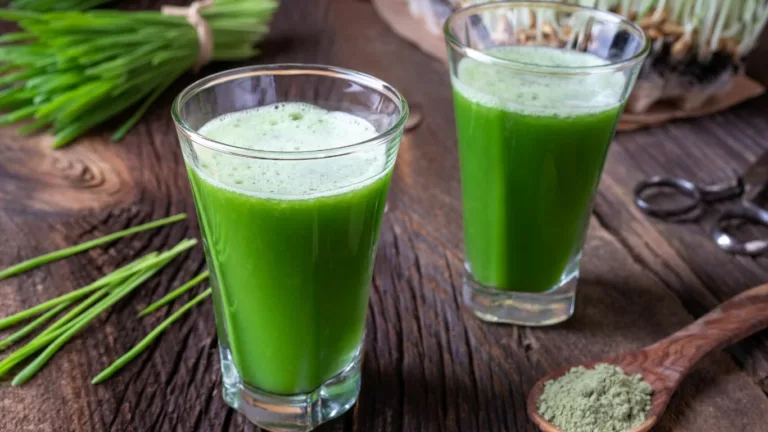Ultimate Guide to GERD and Throat Burning Sensation Relief
If you’ve ever experienced that uncomfortable burning sensation in your throat that just won’t quit, you might be dealing with something more common than you think: GERD and throat burning sensation. As a Medical Assistant working in a Gastroenterology Clinic, I’ve seen firsthand how these symptoms can disrupt daily life and make even simple tasks feel like a challenge. It’s not just a simple irritation — for many, it’s a persistent issue that impacts sleep, eating habits, and overall well-being.
GERD, or Gastroesophageal Reflux Disease, happens when stomach acid frequently flows back into the tube connecting your mouth and stomach (the esophagus). This backwash of acid irritates the lining of your esophagus and sometimes reaches your throat, causing that nasty burning feeling. I’ve met plenty of patients who thought their throat pain was just a stubborn sore throat or allergies, only to find out GERD was the real culprit.
What Exactly Is GERD and How Does It Cause Throat Burning?

Understanding GERD means understanding the basics of your digestive system. Normally, a valve called the lower esophageal sphincter (LES) acts like a gatekeeper — it opens to let food in and closes to keep stomach acid from flowing back up. But when this valve weakens or relaxes abnormally, acid escapes and irritates the esophagus and throat.
When acid reaches the throat, it can cause:
- A burning sensation that feels like heartburn but higher up.
- Coughing or the feeling of a lump in your throat (globus sensation).
In my time at the clinic, I’ve noticed that many people don’t realize their throat discomfort is related to GERD until they connect the dots between their eating habits, lifestyle, and when the symptoms flare up.
Common Triggers That Make Throat Burning Worse

Not all reflux is created equal. Certain foods and habits can aggravate GERD and make that throat burning sensation worse. Here are a few of the usual suspects:
- Spicy and acidic foods: Think tomatoes, citrus fruits, and anything heavy on the chili peppers.
- Caffeine and alcohol: Both can relax the LES and increase acid production.
- Large meals or eating late at night: More food means more acid, and lying down soon after eating lets acid creep upward.
- Smoking: This one’s a double whammy — it weakens the LES and irritates the throat directly.
One memorable case I recall involved a patient who loved late-night snacking on greasy food and then complained about a chronic throat ache. Changing that habit was the first step toward relief, which shows just how powerful lifestyle changes can be.
How to Identify if Your Throat Burning Is Related to GERD

Since throat burning can come from many causes — allergies, infections, or even vocal strain — it’s important to recognize the signs that point toward GERD. Here are some clues that your throat discomfort might be linked to acid reflux:
- Does the burning get worse after meals or when lying down?
- Do you notice a sour or bitter taste in your mouth?
- Is the sensation accompanied by heartburn or chest discomfort?
- Have you experienced hoarseness, chronic cough, or throat clearing?
During my work, I always encourage patients to keep a symptom diary—tracking what they eat, when symptoms hit, and other lifestyle factors. It’s an easy but effective way to help doctors make the right diagnosis and create a personalized treatment plan.
Managing GERD and Throat Burning Sensation: Practical Tips That Work

Once you recognize that GERD is behind that uncomfortable throat burning, the good news is that there are plenty of ways to manage it effectively. Over the years, working closely with gastroenterologists and patients, I’ve seen just how much lifestyle tweaks can ease symptoms — sometimes even without medication.
Simple Lifestyle Changes to Ease the Burn
Here’s what I usually suggest to people dealing with GERD-related throat burning sensation:
- Elevate your head while sleeping: Sleeping with your head raised about 6 to 8 inches helps keep stomach acid from creeping up while you rest. I always remind patients, it’s like giving gravity a little help!
- Eat smaller, more frequent meals: Big meals increase stomach pressure and acid production. Smaller portions are easier on your digestive system and help reduce reflux episodes.
- Avoid trigger foods and drinks: As we talked about earlier, steering clear of spicy, acidic, caffeinated, and alcoholic items can make a world of difference.
- Quit smoking: This is crucial. I’ve seen many patients who struggled with persistent throat irritation improve remarkably after quitting.
- Maintain a healthy weight: Excess weight can put extra pressure on your abdomen, worsening acid reflux symptoms.
One thing I often mention from my experience: patience is key. These changes don’t always work overnight, but consistency really pays off. I had a patient who diligently adjusted her diet and sleeping habits and started seeing real relief within a few weeks.
Medical Treatments for GERD and Throat Burning

If lifestyle adjustments alone don’t quite cut it, there are trusted medical options that can help bring your throat burning sensation under control. As a Medical Assistant, I’ve been part of the team that helps patients navigate these choices and understand their benefits and potential side effects.
Common Medications Prescribed for GERD
Here’s a quick rundown of what doctors often recommend:
- Antacids: These provide quick relief by neutralizing stomach acid. They’re great for occasional flare-ups but not a long-term solution.
- H2 blockers: These reduce acid production more effectively than antacids and last longer. Examples include ranitidine and famotidine.
- Proton pump inhibitors (PPIs): These are the heavy hitters — they block acid production almost completely, allowing the esophagus and throat time to heal. Omeprazole and esomeprazole are common examples.
From my personal experience at the clinic, patients who follow their prescribed medication routine combined with lifestyle changes tend to see the best results. It’s about a balanced approach, not just popping pills.
When to See a Specialist
Some signs mean it’s time to get a closer look from a gastroenterologist:
- Persistent symptoms despite treatment
- Difficulty swallowing or pain when swallowing
- Unexplained weight loss or bleeding
- Severe chest pain
During clinic visits, we emphasize early intervention to prevent complications like esophagitis or Barrett’s esophagus, which can develop from long-term untreated GERD. That’s why it’s important to speak up and get evaluated if symptoms linger or worsen.
Natural Remedies and Home Care Tips

For those who prefer a more natural approach or want to complement their treatment plan, there are several remedies that might help soothe the throat burning sensation:
- Ginger tea: Known for its anti-inflammatory properties, ginger can calm the digestive tract.
- Aloe vera juice: This can help reduce irritation in the esophagus, but make sure to get a product specifically for internal use.
- Chewing gum: Stimulates saliva production which can help neutralize acid.
- Slippery elm lozenges: They coat the throat and esophagus, offering temporary relief.
I always caution patients to check with their healthcare provider before trying new supplements or remedies — especially if they’re already on medication. Combining treatments safely is important, and your care team can guide you best.
Long-Term Outlook and Preventing GERD-Related Throat Burning

Living with GERD and that persistent throat burning sensation can feel frustrating, but from my experience working closely with patients, I’ve seen that managing this condition long-term is totally possible. It’s all about staying consistent, monitoring symptoms, and making adjustments as needed. The goal? Keeping that throat burn at bay and improving your quality of life.
One key thing I always tell patients: don’t ignore recurring symptoms or brush them off as “just part of life.” GERD, if left unchecked, can lead to complications like inflammation, scarring, or even precancerous changes in the esophagus. Trust me, early intervention and staying on top of your treatment plan really make a difference.
Tips for Maintaining Control Over GERD
- Regular follow-ups: Whether it’s with your primary doctor or a gastroenterologist, keeping regular appointments helps catch any changes before they become serious.
- Stay mindful of your diet: What you eat plays a big role. Even after symptoms improve, continuing to avoid trigger foods helps prevent flare-ups.
- Manage stress: Stress doesn’t directly cause GERD, but it can worsen symptoms by increasing stomach acid and muscle tension. Simple relaxation techniques can go a long way.
- Keep a symptom journal: This helps track what works and what doesn’t, making it easier to adjust treatments or lifestyle habits.
- Don’t self-medicate: Overusing antacids or PPIs without medical advice can sometimes cause more harm than good. Always follow your healthcare provider’s recommendations.
One patient story that sticks with me is a gentleman who battled throat burning for years without realizing it was connected to his reflux. Once he made some lifestyle shifts and committed to regular check-ins with his doctor, his symptoms improved dramatically. Moments like these remind me how powerful informed care is.
The Role of Healthcare Professionals in Your GERD Journey

From my time as a Medical Assistant in a gastroenterology clinic, I’ve witnessed how a dedicated healthcare team can transform someone’s experience with GERD and throat burning sensation. It’s not just about medications or tests — it’s about education, support, and partnership.
Doctors, nurses, dietitians, and assistants all play a part in creating a personalized plan that fits your unique needs. And I can’t stress enough how important it is to communicate openly about your symptoms, struggles, and successes. That way, the care team can tailor treatments and lifestyle recommendations specifically for you.
For example, I often help patients understand how to read nutrition labels or suggest simple meal prep ideas that avoid common triggers. Little things like these add up and empower patients to take control over their health.
When Surgery Might Be an Option
While most people can manage GERD with lifestyle changes and medication, there are cases where surgery becomes a consideration — especially if symptoms are severe or medications aren’t effective. Procedures like fundoplication strengthen the LES to prevent acid reflux.
I’ve seen some patients benefit from these surgeries, but they always require thorough evaluation and discussion about risks and benefits. It’s a decision best made with your gastroenterologist and surgical team.
References & Resources
- Centers for Disease Control and Prevention (CDC)
- National Institute of Diabetes and Digestive and Kidney Diseases (NIDDK)
- Mayo Clinic
- National Health Service (NHS)
Disclaimer
This article is intended for informational purposes only and does not replace professional medical advice, diagnosis, or treatment. Always consult your healthcare provider with any questions you may have regarding a medical condition. Never disregard professional medical advice or delay seeking it because of something you have read here.

Camellia Wulansari is a dedicated Medical Assistant at a local clinic and a passionate health writer at Healthusias.com. With years of hands-on experience in patient care and a deep interest in preventive medicine, she bridges the gap between clinical knowledge and accessible health information. Camellia specializes in writing about digestive health, chronic conditions like GERD and hypertension, respiratory issues, and autoimmune diseases, aiming to empower readers with practical, easy-to-understand insights. When she’s not assisting patients or writing, you’ll find her enjoying quiet mornings with coffee and a medical journal in hand—or jamming to her favorite metal band, Lamb of God.







